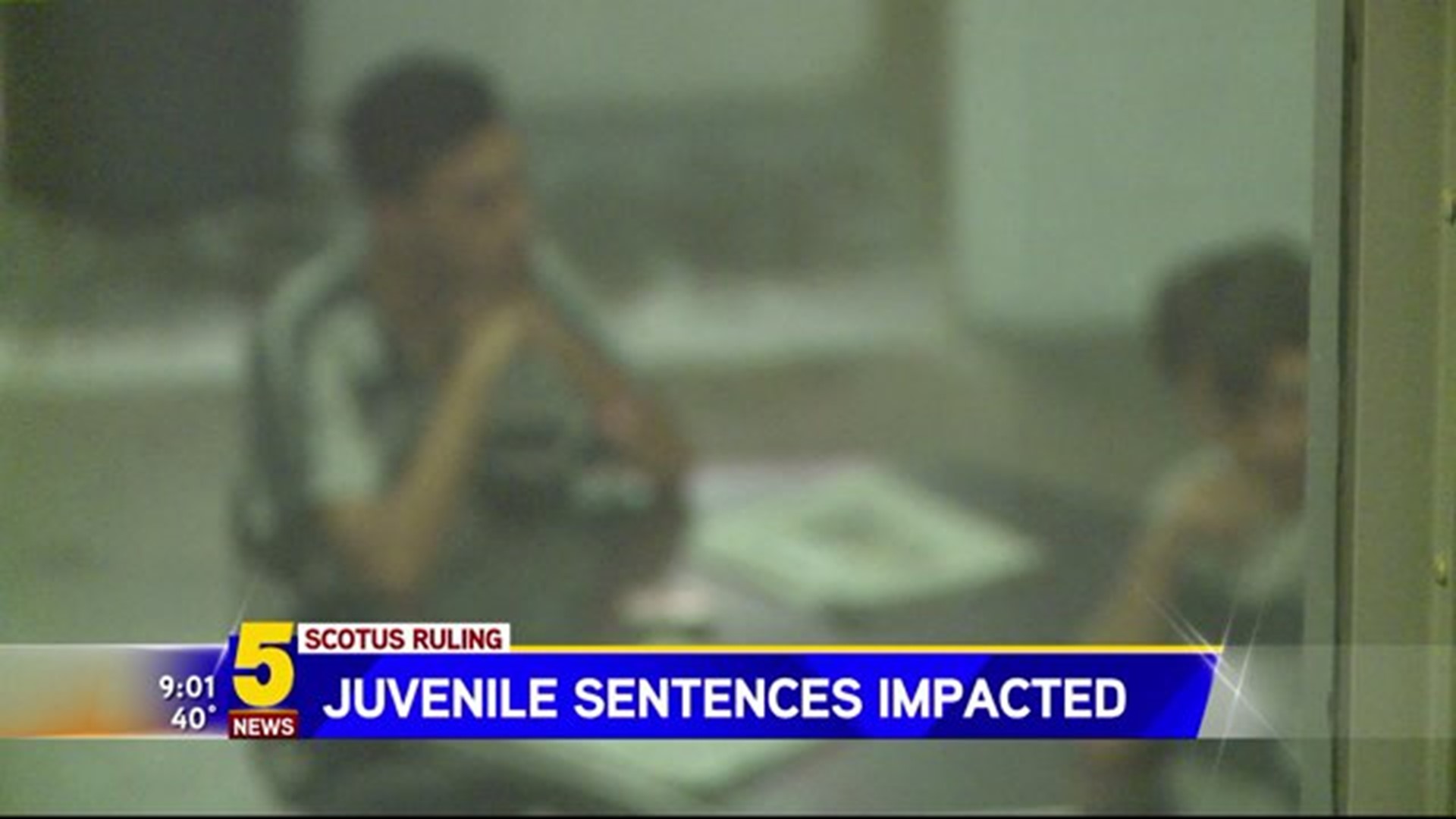NORTHWEST ARKANSAS (KFSM) -- In a 6-3 decision on Monday afternoon (Jan. 25), the Supreme Court ruled that those serving life sentences for crimes they committed as juveniles should be given the chance to be paroled.
State Representative Greg Leding said the ruling was a decision he has backed for many years.
In 2015, Leding cosponsored a bill with Republican Missy Irvin, which would have provided those who were sentenced to life in prison without parole as juveniles the possibility to be paroled in the future.
“Science has shown there is a distinction in the way their brains function," Leding said. "We need to treat children differently.”
Leding’s bill, which ultimately failed in the State House, was similar in principal to the ruling the Supreme Court made.
“[The] ruling makes it clear, that you can no longer sentence a minor to life without parole, except under very rare circumstances,” Leding said.
Arkansas is ranked No. 33 in the nation in population. However, the state is ranked sixth for inmates incarcerated for life without parole, for crimes they committed as juveniles.
Benton County Prosecutor Nathan Smith said the ruling will be harmful to the judicial system in states.
“The court, in this case, has really taken the power away from the states and the people, to determine what an appropriate legislative prerogative is,” Smith said.
Smith said the issue should be left for individual states to handle, instead of the Supreme Court.
“You don’t have to be a fortune teller to know where the court is going,” Smith said. “And, that is eventually, I believe, they are trying to land at the spot of life without the parole for juveniles is simply unconstitutional. That is a troubling development, just in the scope of judicial power, going forward.”
Smith said retrying and resentencing convicted murderers decades after they committed the crime could not only be incredibly difficult, but could also revive horrific memories for those involved.
“I think the real tragedy of the case is it deprives victims, and their families, of the finality that they were guaranteed by jury verdicts,” Smith said.
However, Leding said he believed some crimes committed as a juvenile should not completely override someone’s possibility to thrive in society, as long as that inmate served an adequate punishment.
“Somebody, if they commit a horrible crime, absolutely deserves to go to jail,” Leding said. “But, if it is a 14-year-old boy who just happens to make a tragic decision, there is nothing good in that. But, we should work to find whatever hope we can in that situation.”
Leding said some studies showed it costs a state more than $2 million to incarcerate a juvenile for life.

